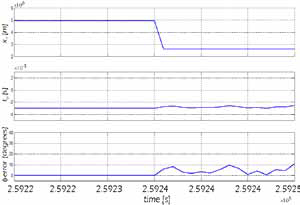Reliability Engineering for Smart Grid Applications: Assessing Threats to PMU Synchronization and Algorithms through GPS Spoofing
Xichen (Steve) Jiang with advisor A. Domínguez-García
Reliability will be a pivotal issue as the present day power system updates and revamps to meet new Smart Grid standards. Integrating new technology will increase the complexity of the existing system and add additional sources of uncertainty. One technology receiving considerable attention is synchronized phasor measurement units (PMU), which are synchronized through Navstar GPS signals. PMUs provide wide area measurements in power systems. This allows for real time estimation of the current grid state through static state estimators and is essential for overall health monitoring of the power infrastructure.
As synchronization is necessary for PMU operation, my research involves developing a taxonomy of different spoofing methods on the GPS signals that will cause PMUs to lose time synchronization. Such an attack invariably results in errors in the state estimation of the power system, impacting system stability. A rogue signal containing false satellite ephemerides can be sent from a transmitter to spoof the receiver atomic clock correction time. The nominal values for the receiver location and clock correction are computed using MatLab. Then an optimization problem for the maximum time shift of the clock correction is formulated and computed. Preliminary results show that a maximum time shift of 8ms for the clock correction is possible. This corresponds to a phase shift of half a cycle. Figure 38 shows this shift in phase of PMU measurement as the ephemerides are perturbed while the change in receiver location remains minimal in order to evade detection.
This research is supported by the National Science Foundation grant NSF ECCS 09 54420 CAR.
